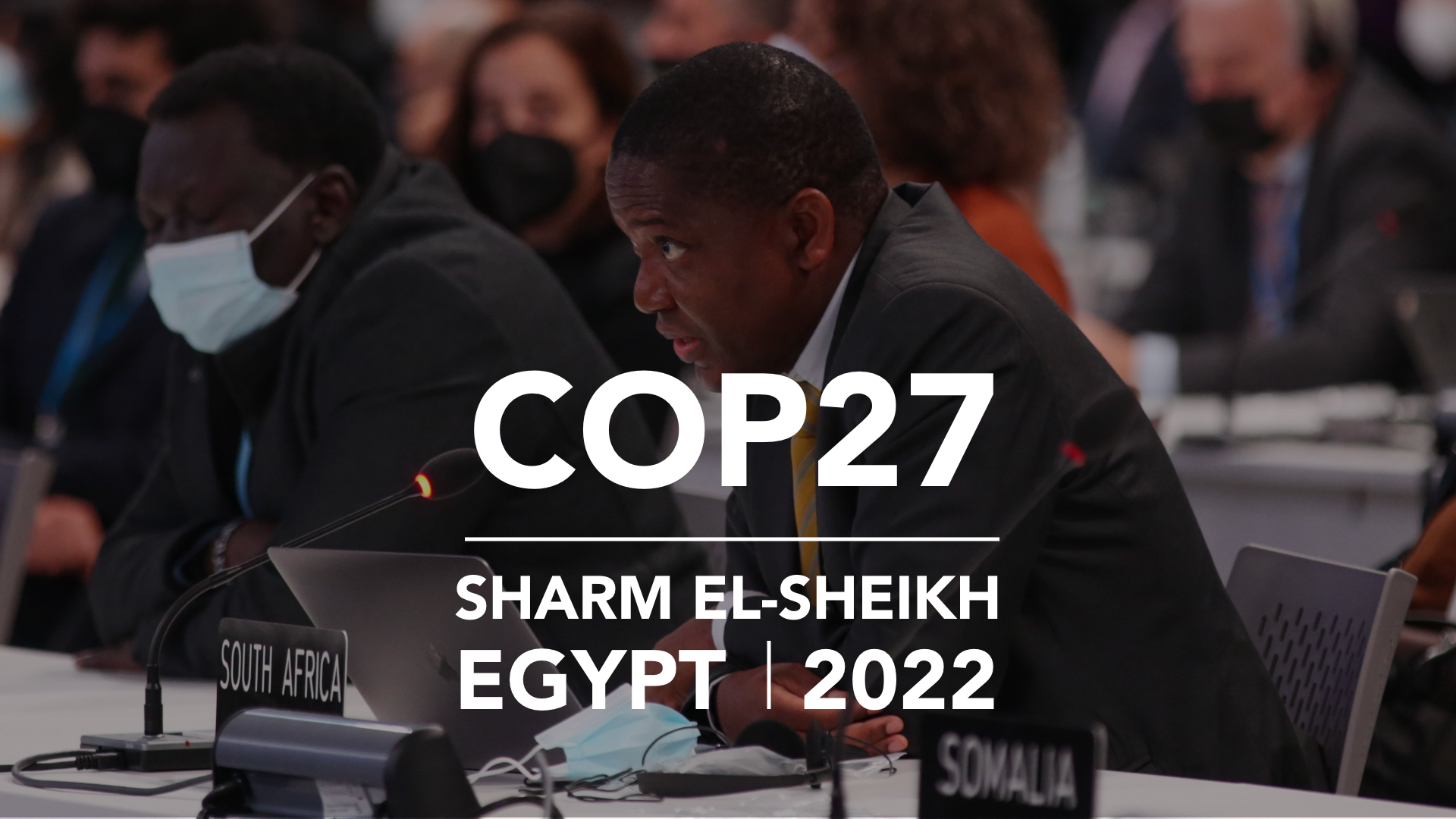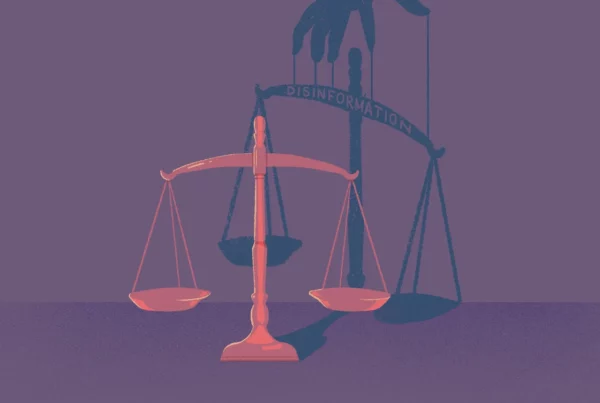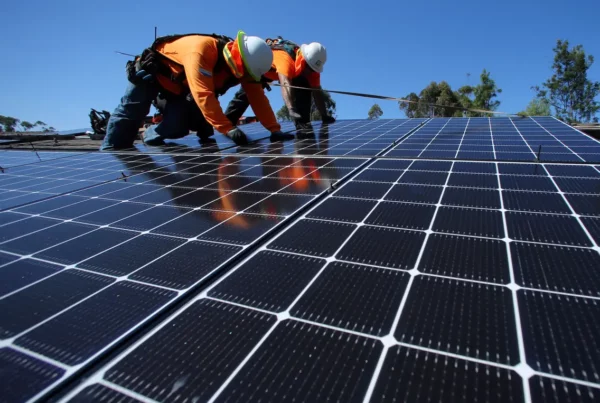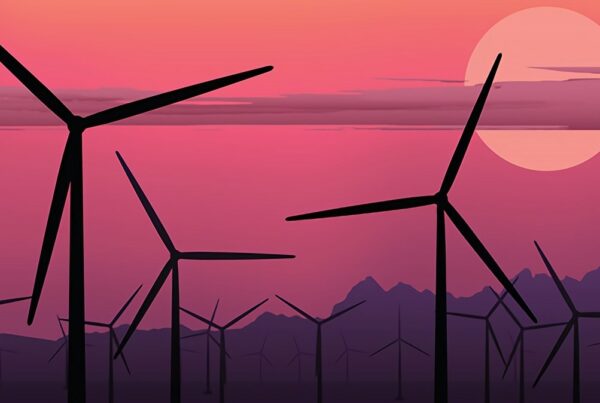Egypt will host this year’s UN COP27 summit against the backdrop of the climate, energy and food crises.
In 2022 so far, climate change and Russia’s war on Ukraine have converged to trigger new weather extremes, food and fuel shortages and a cost of living crisis. In Africa, floods and storms have killed hundreds of people across the south. The ongoing drought in the Horn of Africa has brought famine to millions of people.
What these coinciding crises have in common is the world’s reliance on fossil fuels. But, so far, the response from leaders has been to prop up the polluting industries of the past.
COP27 is an opportunity to renew and strengthen efforts to phase out fossil fuel dependence while helping vulnerable nations adapt to climate impacts. There is a need like never before to mobilise immediate action in the countries most affected by these crises.
What is the COP27 summit?
Every year, the UN brings together almost all the world’s nations for a global climate summit known as Conference of the Parties, or COP. The 27th COP takes place this year in Egypt’s Sharm El-Sheikh, from the 6th to the 18th of November.
This year’s summit theme is ‘implementation‘. The aim is to move on from negotiations and planning and towards deploying immediate climate action on the ground. Priorities include increasing finance for developing and emerging economies to adapt to the impacts of climate change, and long-term capacity building for climate resilience.
What has happened since COP26?
Despite new and strengthened promises for climate action at CO26 in Glasgow, commitments fall short of limiting the global temperature rise to 1.5°C. Furthermore, global economic turmoil and Russia’s war mean countries are already backsliding on action and promises.
What must be gained from Africa’s COP27?
Africa is the world’s most climate-vulnerable continent and in need of immediate climate action. Through COP27, the continent can establish a leading role in facilitating and mobilising this much needed action at scale.
These are the key areas COP27 must deliver on:
- Wealthy nations must deliver US$100 billion each year in climate finance. These countries must set out plans to deliver this finance for low-emissions development and climate adaptation and resilience to meet a promise not yet met.
- Deliver financial crisis support to nations bearing the burden of climate impacts. Climate reparations must be delivered to countries most affected by climate impacts, food shortages, spiking energy prices, and climate-related debt and insurance issues.
- Strengthen national emission reductions to align with the 1.5°C temperature limit. Global emissions are still rising. Major polluters must phase down their use of coal, oil and gas to halve emissions by 2030 and reach net zero by 2050.
- Major economies and financial institutions must fulfil promises made at COP26. Commitments made covering transport, energy, methane and deforestation would be game-changing but must be put into action.
- Prepare for the first Global Stocktake, which runs from 2023 to COP28. COP27 must set out a clear and transparent assessment process for the Global Stocktake involving the private sector, regions, civil society and youth.
How climate change threatens life in Africa
Communities in Africa are on the frontline of climate change. Yet, the entire continent contributes less than 4 per cent of global emissions.
Already, heavier rainfall, higher temperatures and increasing dry spells are affecting food production and security. Driven by climate change, the number of undernourished people in sub-Saharan Africa grew by 45 per cent between 2019 and 2021. In addition, climate change is increasing the transmission of diseases, including dengue fever, yellow fever and malaria.
These conditions are stalling Africa’s progress towards food security, economic development and human wellbeing. Without reducing emissions, the situation will get worse. If global temperatures rise by between 1°C and 4°C, GDP in Africa is projected to decrease by between 2 and 12 per cent.
Already, governments across Africa are contributing more than their fair share to climate adaptation. It is the international community’s responsibility to recognise the multiple crises pressuring the continent and deliver on their promises.
COP27 must bring international solidarity
The world’s reliance on fossil fuels is driving the multiple crises of climate change, war, food and energy shortages and disease. Trust between countries is being eroded, and solidarity is key to reducing emissions and building resilience.
Nations most at risk of the impacts of climate change are also seeing fast-growing populations. They also include some of the biggest polluters. Delivering finance and building capacity among these countries will protect the most vulnerable, strengthen global supply chains and foster wider economic stability around the world.





